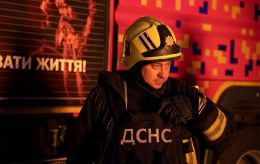'Russia wants us to leave our country and forget our history' - Ukrainian military volunteer miraculously survives injury
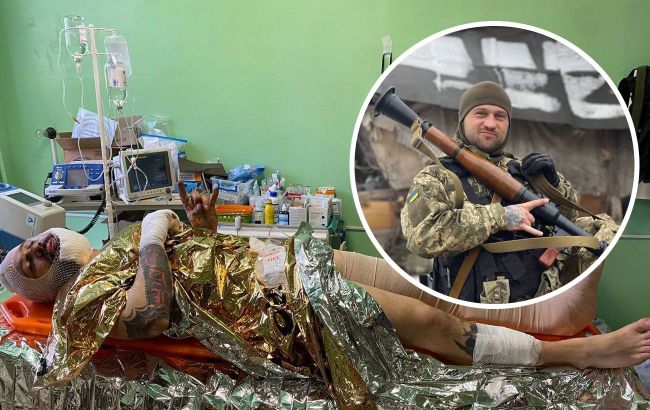 Soldier Ruslan Romanov actively volunteers after being wounded (Collage: RBC-Ukraine)
Soldier Ruslan Romanov actively volunteers after being wounded (Collage: RBC-Ukraine)
Ruslan "Pank" Romanov volunteered for the "Azov" battalion in the early days of the Anti-Terrorist Operation (ATO) in 2015, during the ongoing war in Donbas, with several years remaining before Russia's large-scale invasion. He was one of the first to stand up for the defense of Ukraine when the major war began. Even after sustaining a severe injury, he continues to assist the military.
The defender shared with RBC-Ukraine his story of recovery after a severe injury and explained why it is essential to know one's history and continue supporting the army.
"Body was at zero." How a soldier got injured
Ruslan, a hairdresser by education, was also involved in music in civilian life. At 16, he formed his first punk band, lacking any prior musical experience.
His life drastically changed due to the war when he became a soldier. He spent six years on the front lines, serving at different times in a battalion that later evolved into the "Azov" regiment. He also served in the special forces of the National Guard and the marine infantry.
.jpg)
Ruslan Romanov with his comrades-in-arms (photo from the warrior's archive)
Then, after six months of service, he had a break in Lviv. However, from the first days of the full-scale invasion, he went to Kyiv with the Lviv branch of the National Corps. Some guys were supposed to go to Mariupol, but some stayed to defend Kyiv when the occupiers approached the city. Ruslan was one of those who stayed to defend the capital. Later, he went to serve in the south, and in May 2022, he was injured in the Zaporizhzhia direction.
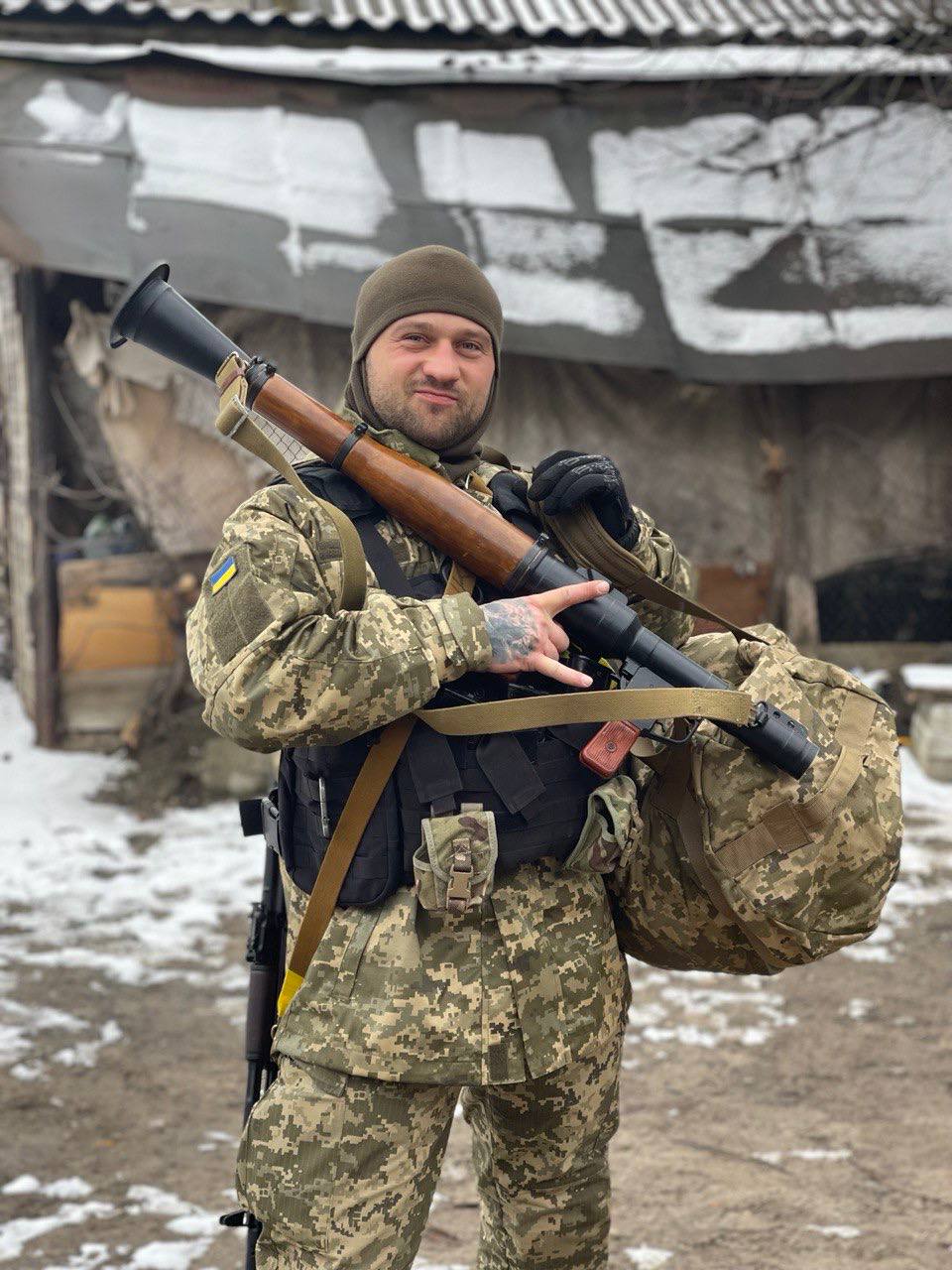
Ruslan Romanov (photo from the warrior's archive)
"I was traveling in a car, and as a platoon commander, I had to lead the guys to their positions. Before that, we had to examine the location. While we were driving, a mine detonated underneath us and exploded. After something like that, if people survive, they mostly end up disabled," the veteran recounts.
Ruslan had a closed fracture of his left leg, the limb was broken below the knee to the tips of the toes. He underwent four surgeries in more than a year, and now, instead of a joint, there are three large screws. Also, after the injury, he had to stitch up the jaw on both sides.
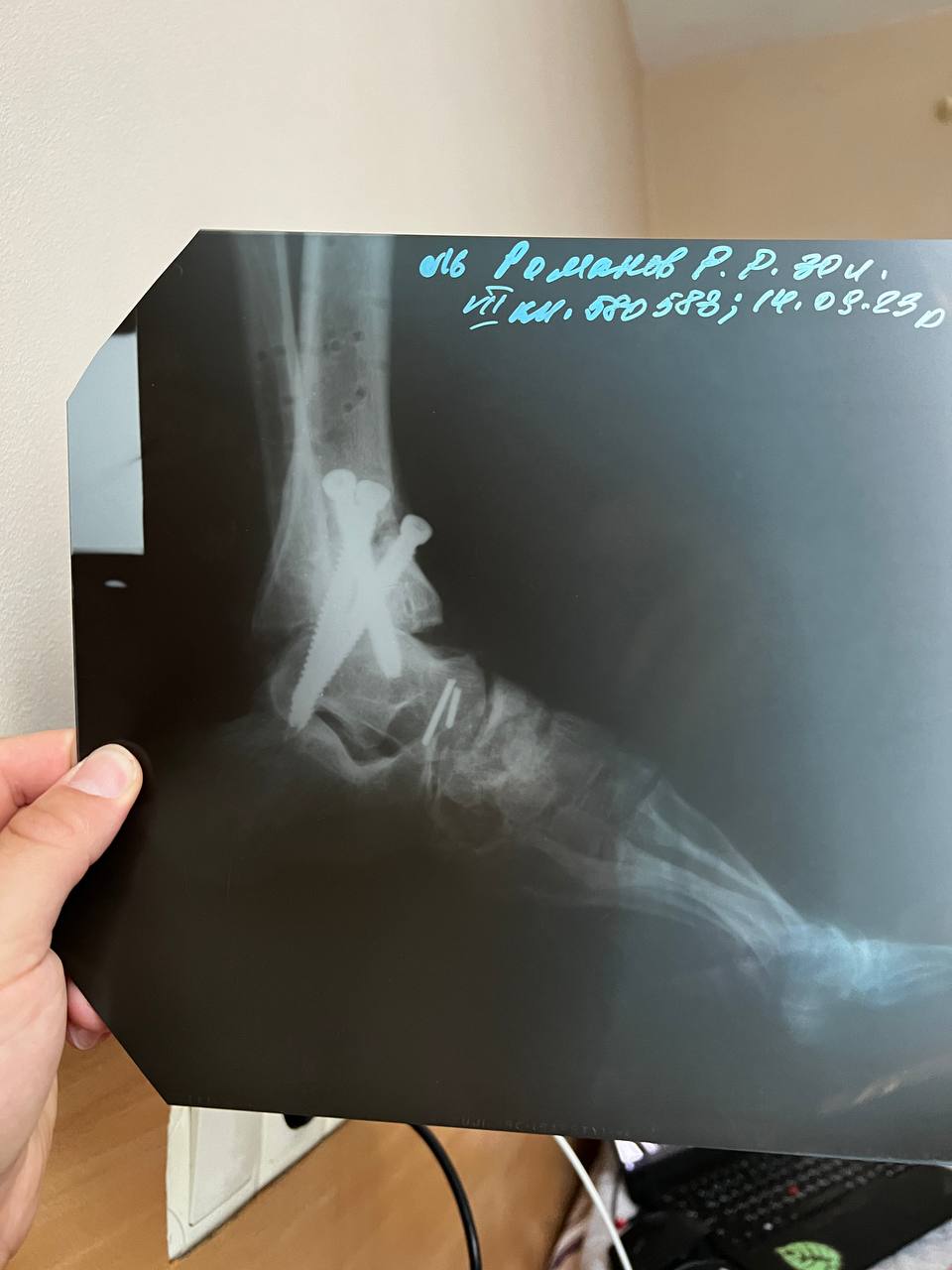
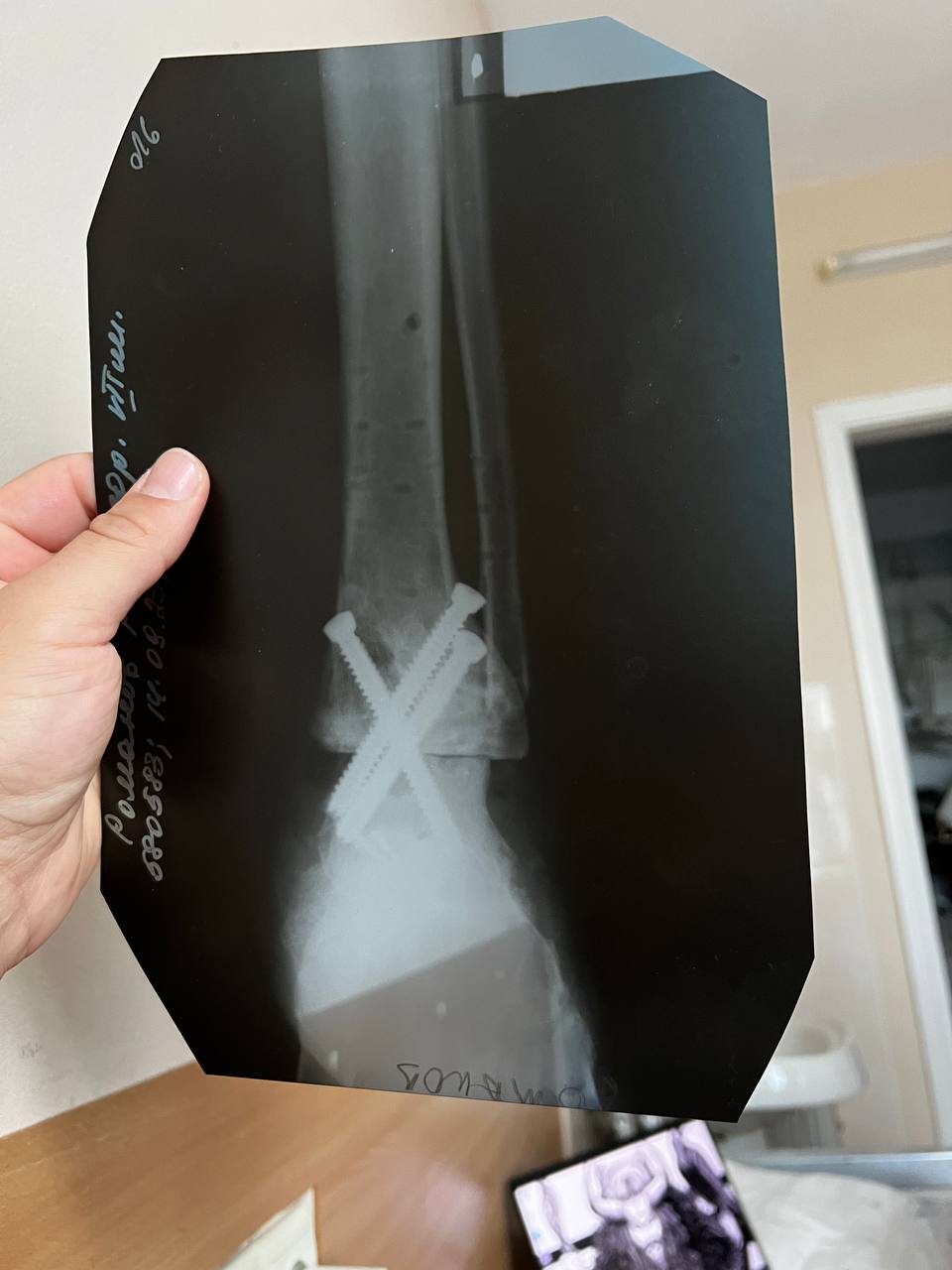
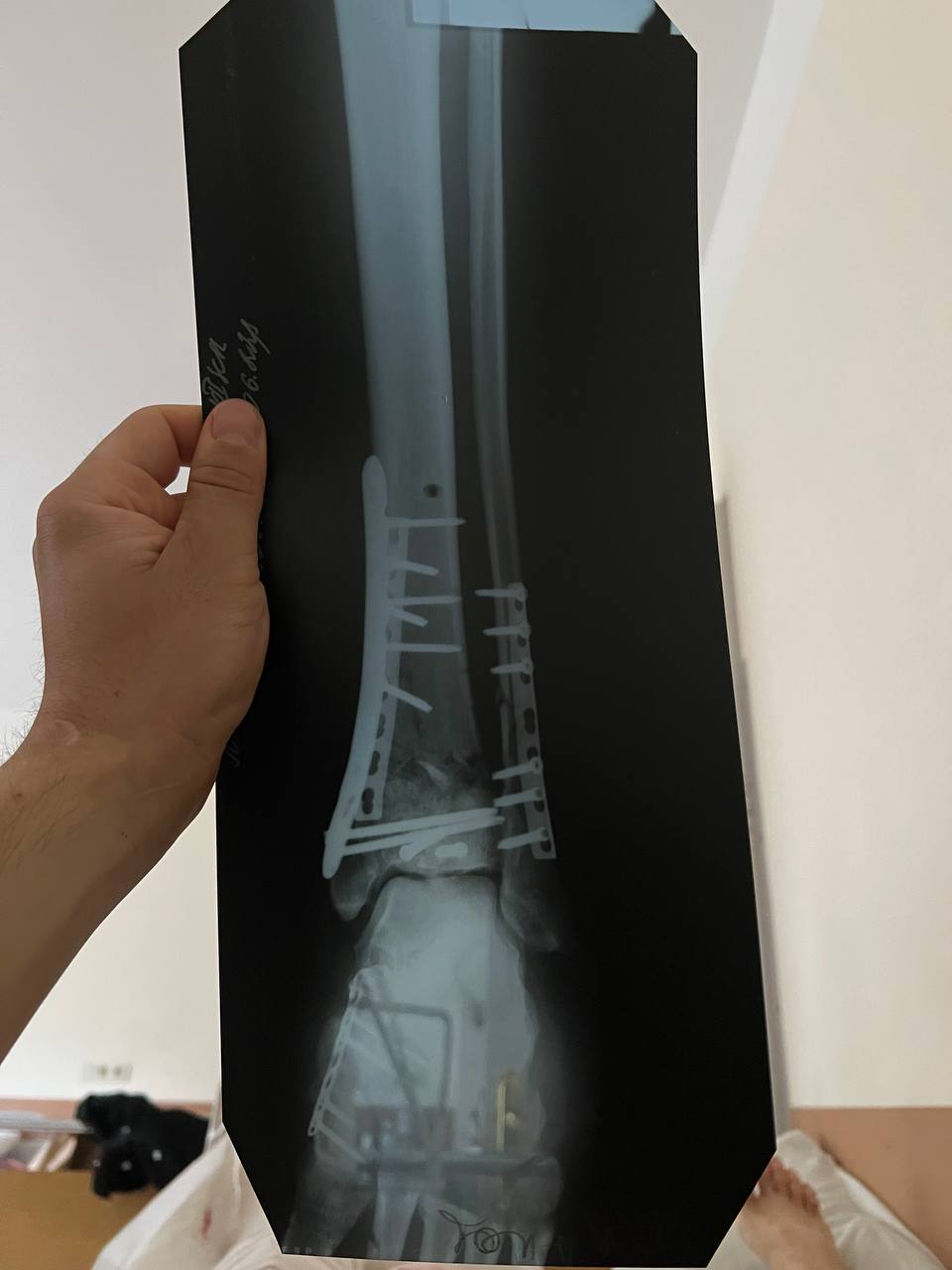
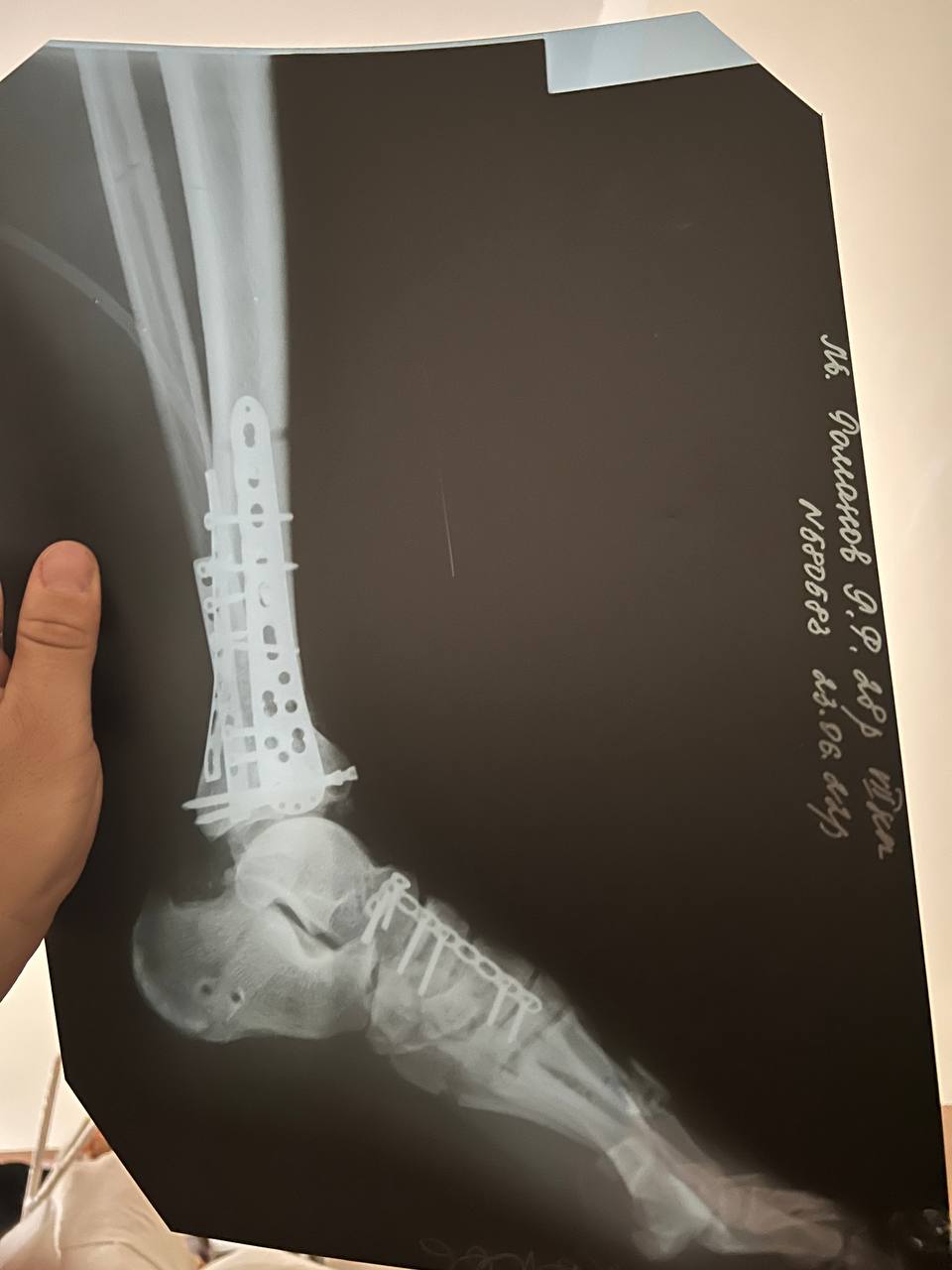
Ruslan Romanov was seriously wounded (photo from the soldier's archive)
"The recovery is ongoing now, for over a year. Six months after the injury, I began to stand on my feet. For three months, I practically didn't stand at all – my body was practically at zero, dizzy, and I couldn't sleep. Moreover, I had extreme pain for a whole year because the bones were fusing. It was very difficult, both psychologically and physically. The first three months, in particular, were very tough. Eventually, I started walking with two crutches and then with one crutch. I tried walking without a crutch but couldn't. And now I can only cover a short distance alone," the man shares.
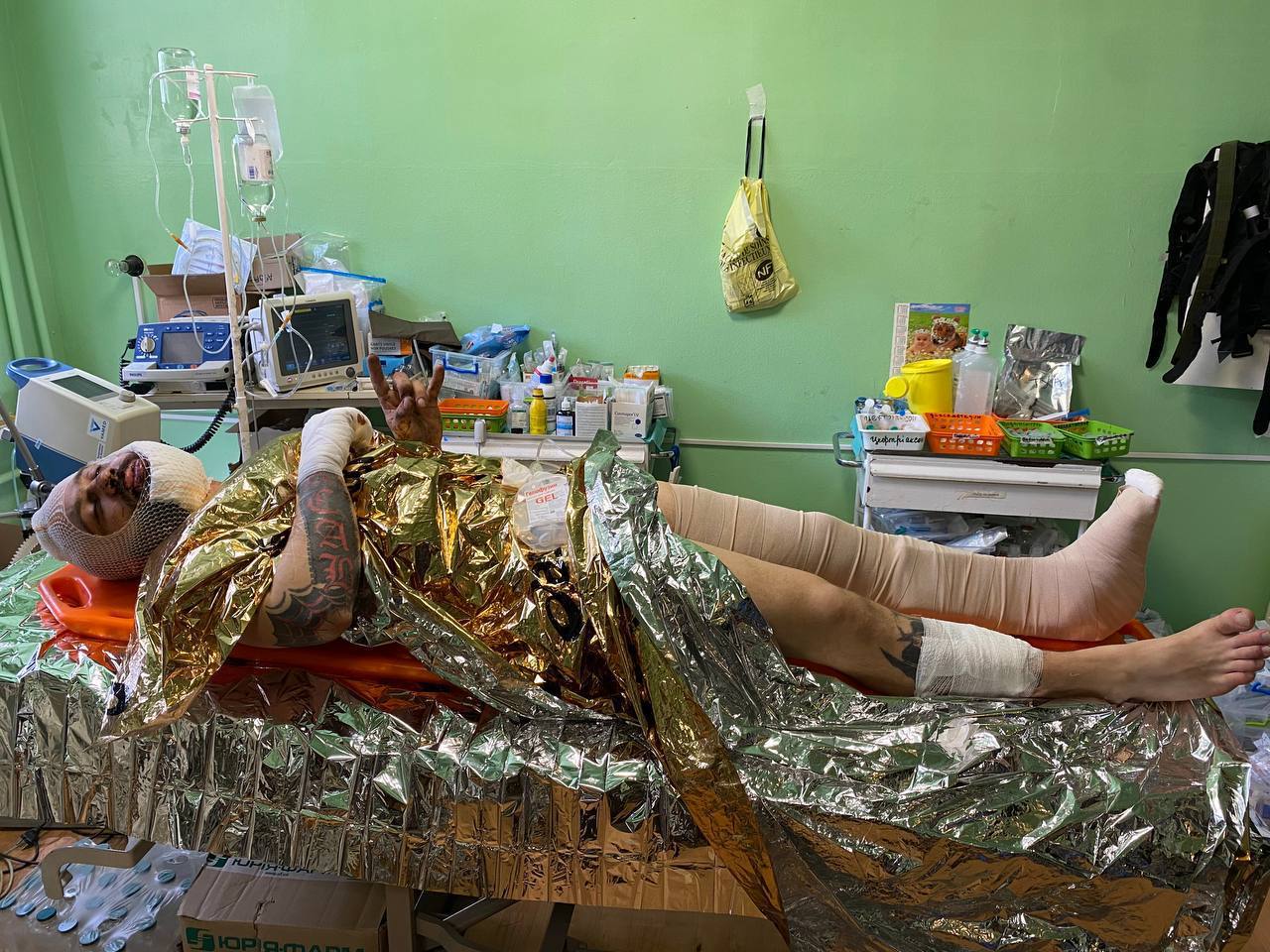
Ruslan Romanov was seriously wounded (photo from the soldier's archive)
About the importance of supporting the Armed Forces of Ukraine
Now, it is more challenging to conduct various fundraisers: if people actively donated to the army before, the enthusiasm is declining. However, Ruslan says that one should not stop helping because the war's outcome depends on all of us now.
"I continued to volunteer even from my bed. I helped the guys as much as I could. I couldn't walk yet because recovery after such an injury takes a long time. But I still wanted to help my brothers. I joined the Support Azov organization and volunteered there until this spring," the soldier shares.
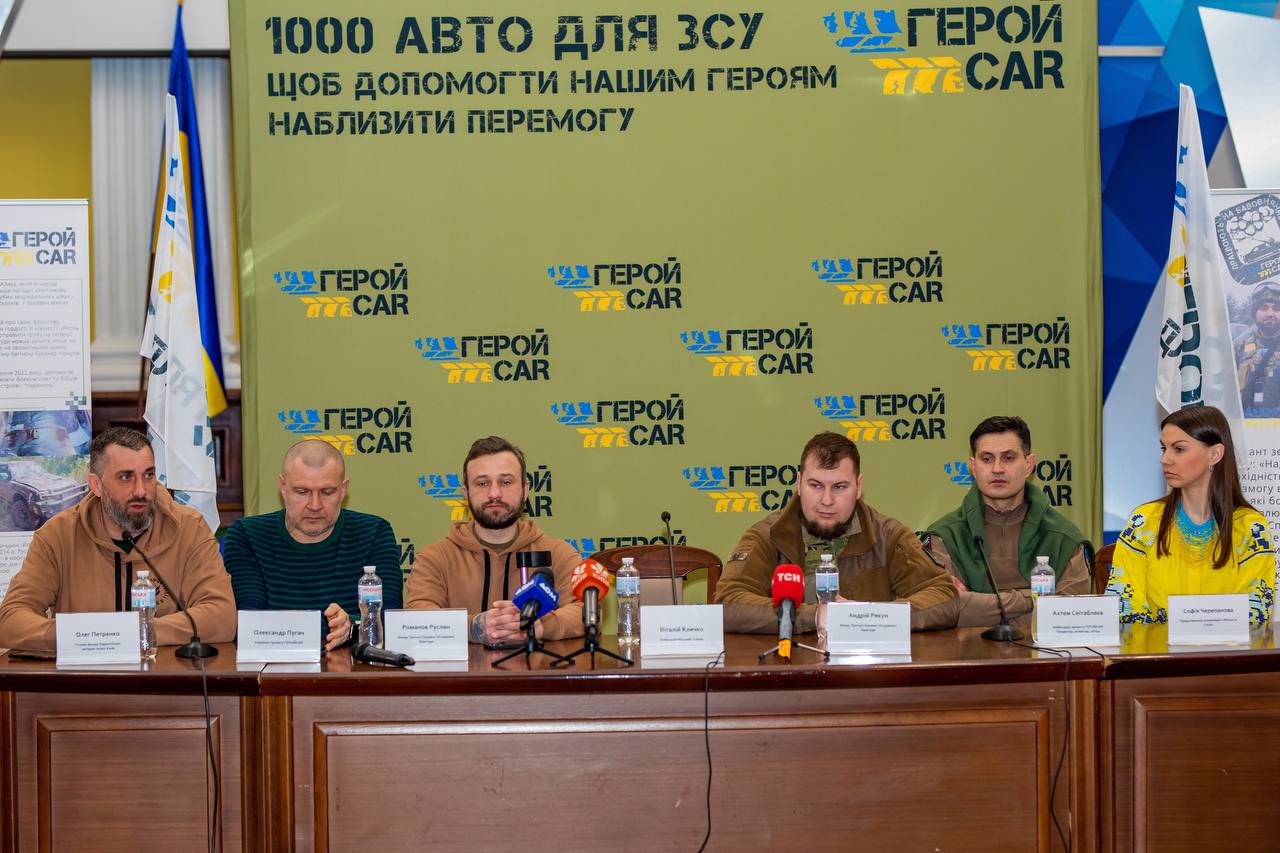
Ruslan joined the Support Azov organization (photo from the soldier's archive)
However, with constant chronic pain and simultaneously addressing many issues, it was very challenging. Ruslan was on painkillers all the time.
"At certain moments of rehabilitation, I did not deny myself, motivating myself only by the fact that if the Russians enter the Kyiv region again, my rehabilitation will be pointless anyway. At the same time, I thought that my recovery would be quick and I could perform some tasks. But doctors say that I won't be able to wear body armor, I won't be able to run anymore. If I walk with a crutch in a trench, I simply won't be able to reach the shelter," he says.
.jpg)
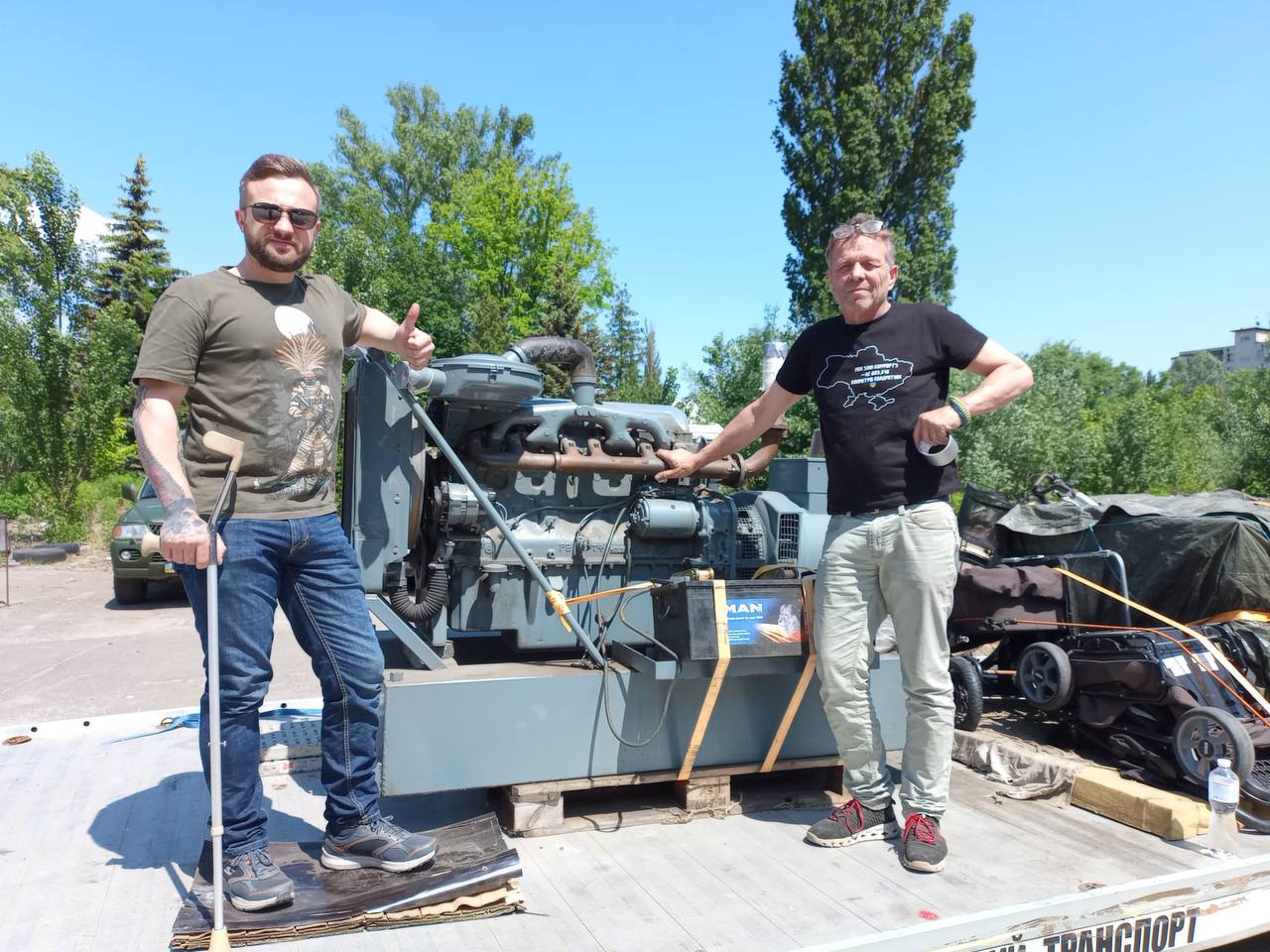
Ruslan continues to volunteer (photo from the soldier's archive)
Now, after months of chronic pain, the nervous system of the defender is just starting to recover, he says.
"Memory problems started. It isn't easy because I can forget what happened an hour or three to four days ago. I won't be able to perform the functions assigned to me.
So I decided that until I am useful in another format," Ruslan says.
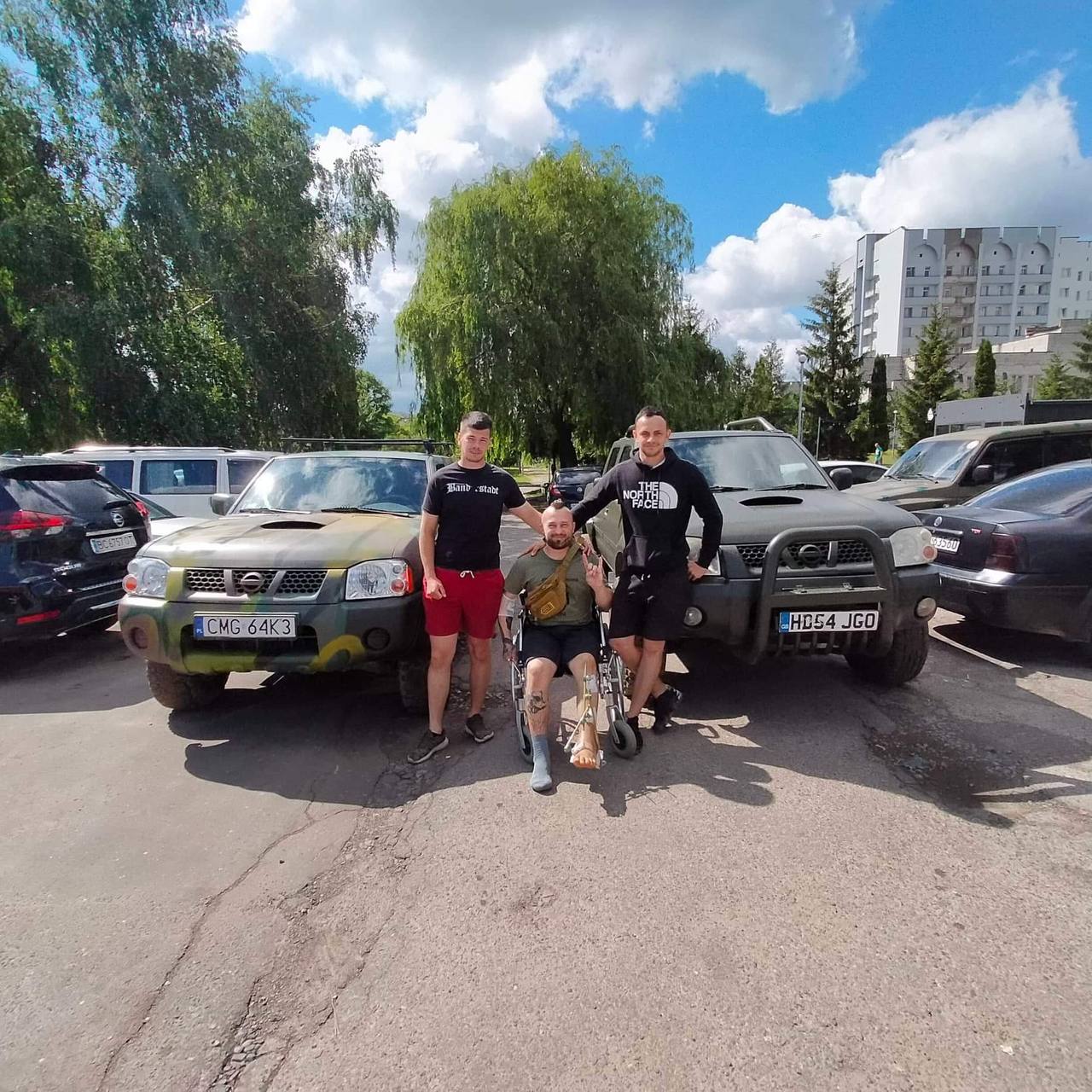
Ruslan Romanov (photo from the warrior's archive)
"Fortunately, I survived at all." Challenges of adaptation to civilian life
Ruslan says that one of the first things a soldier thinks about if he is injured in war is how to "assemble the frame": come to his senses psychologically and decide what to do next. And it's essential to seek support from loved ones and doctors. And by no means should you close yourself off.
"I was lucky in principle that I survived at all," confesses the defender.
Civilians need to support a veteran who came from the war. Ruslan saw how, after returning home, injured fighters morally gave up because they understood that no one needed them.
As for mental health, not everyone will understand military personnel. Not all psychologists even have the appropriate expertise to work specifically with veterans. Because the problems they come with are different from those faced by people in civilian life.
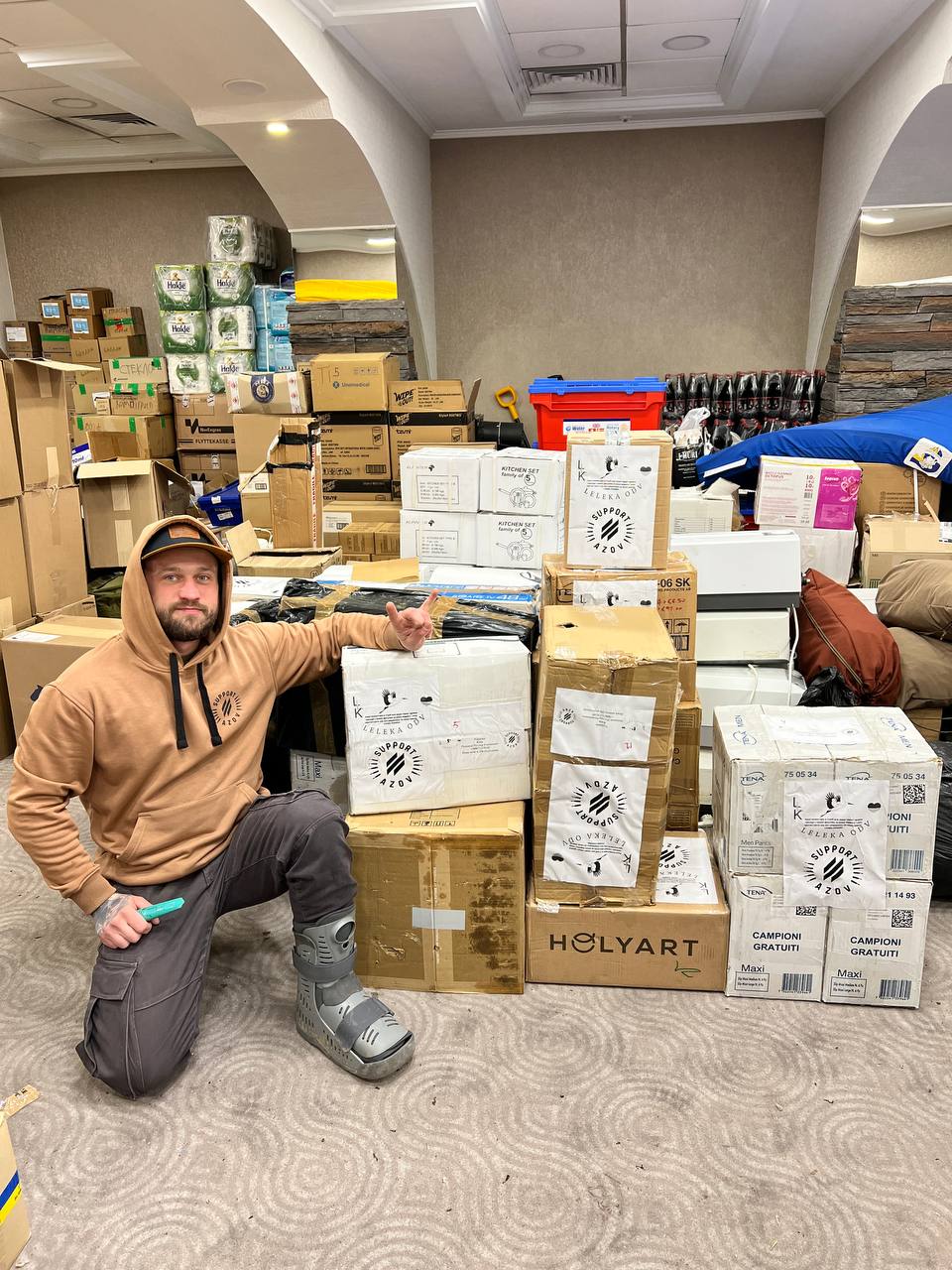
Ruslan Romanov (photo from the warrior's archive)
"And defenders themselves need to understand that rehabilitation starts with them. I had psychological problems, and because of this, I began to be interested in how I could pull myself out of this state. I started reading books, which helped me a lot. Therefore, there is no need to be ashamed to seek help if you cannot pull yourself together; you must be helped. You cannot close yourself off, stay alone. A friend of mine closed himself off after the injury, stopped communicating, and I don't even know where he is and what he's doing," he adds.
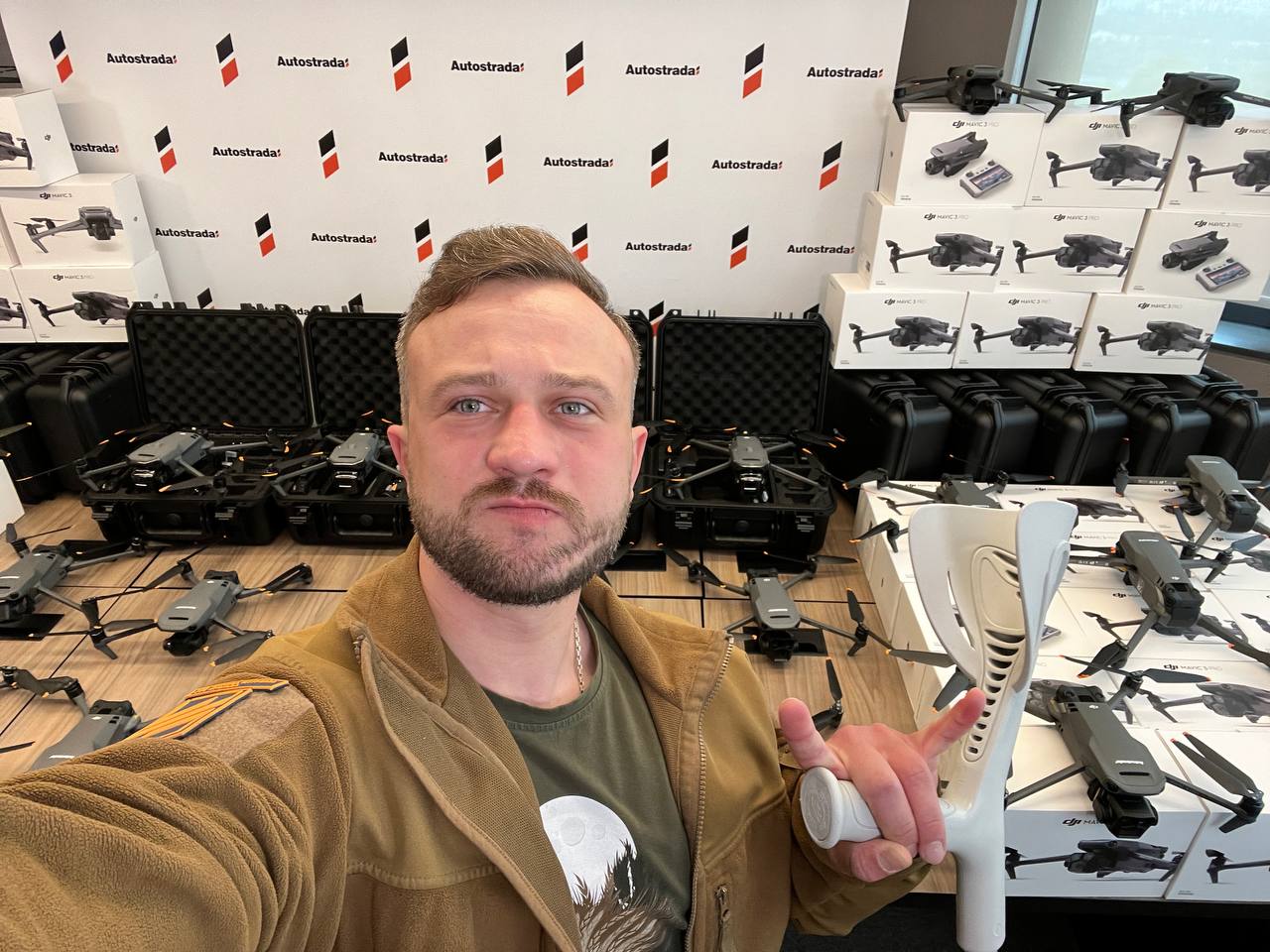
Ruslan Romanov (photo from the warrior's archive)
"Russia appropriates everything it sees." Why it is important to know your history
"After returning from the front, Ruslan became even more interested in the history of Ukraine and national traditions. It helped him recover from a complex psychological state more quickly. He believes other military personnel can also be helped by attending thematic events and workshops and communicating with people there.
"In general, I believe that knowledge and understanding of history are necessary for all of us. Now, it is one of the important issues, especially during the war – people must understand what they are fighting for. Knowing who we are and why it is essential to preserve Ukraine will provide great motivation. This will unite the civilian population with the military: we must be one monolith. I am convinced that people who do not know their history will not have a future," he expresses his opinion.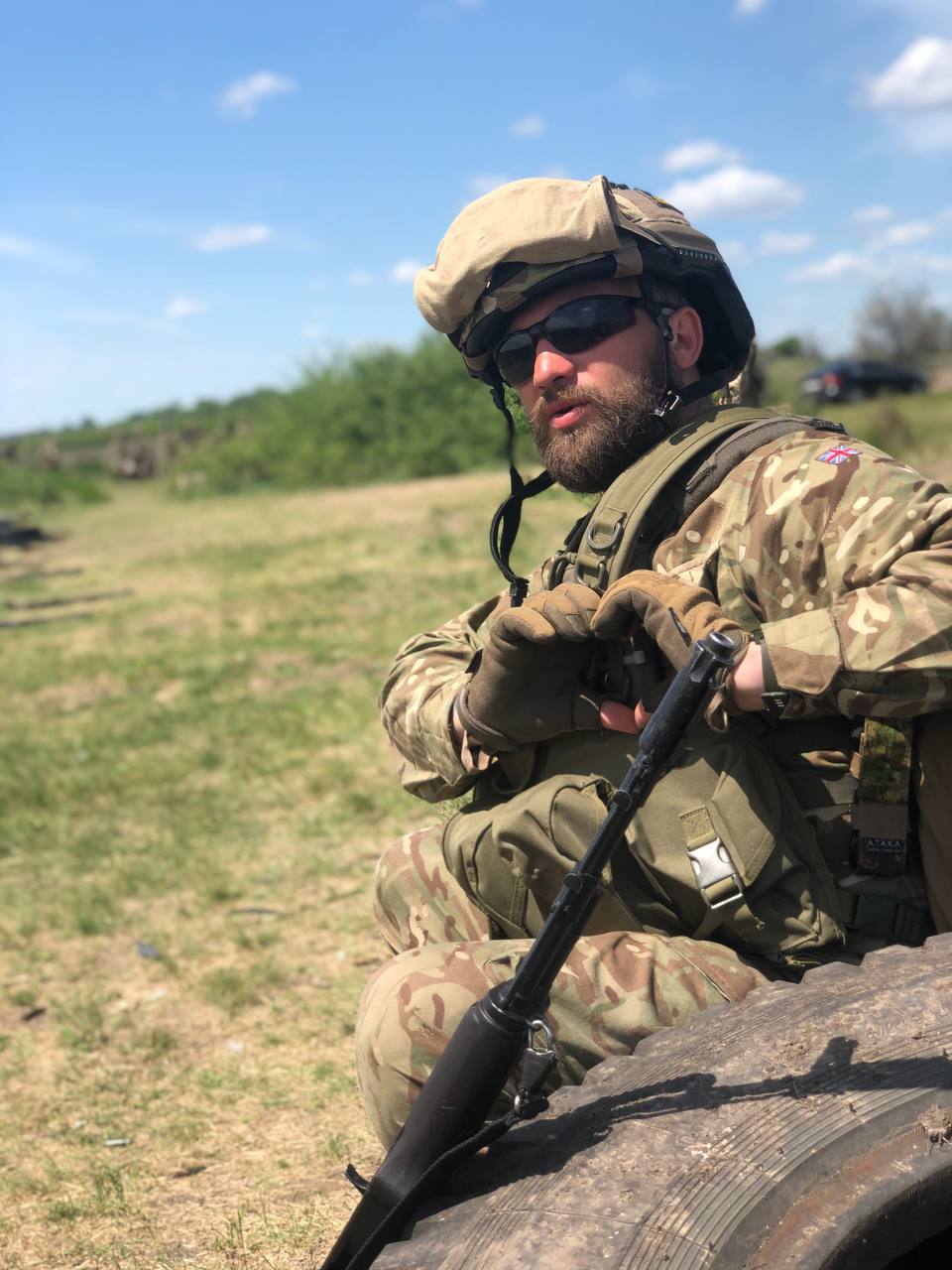
Ruslan Romanov (photo from the warrior's archive)
Ruslan is from Luhansk, and he witnessed how, since 2014, Russia has been massively kidnapping and exporting everything of historical and cultural value from Ukraine. This was done so that we would not have a connection to history, says the military.
"And when there is no connection to our history, there is less motivation to fight. Russia appropriates everything it sees. The looting of our heritage by occupiers has reached the point that now I cannot find a men's embroidered shirt from Luhansk. Don't think that the war won't touch anyone. In one way or another, someone's acquaintances died on the front, someone's house was destroyed by a rocket, and someone's relatives miraculously escaped from occupation. Now, we all need to understand what we are fighting for. After all, the enemy wants us to leave the country, everyone to leave here, forget our history. Although you categorically cannot do this because of it," Ruslan is convinced.
